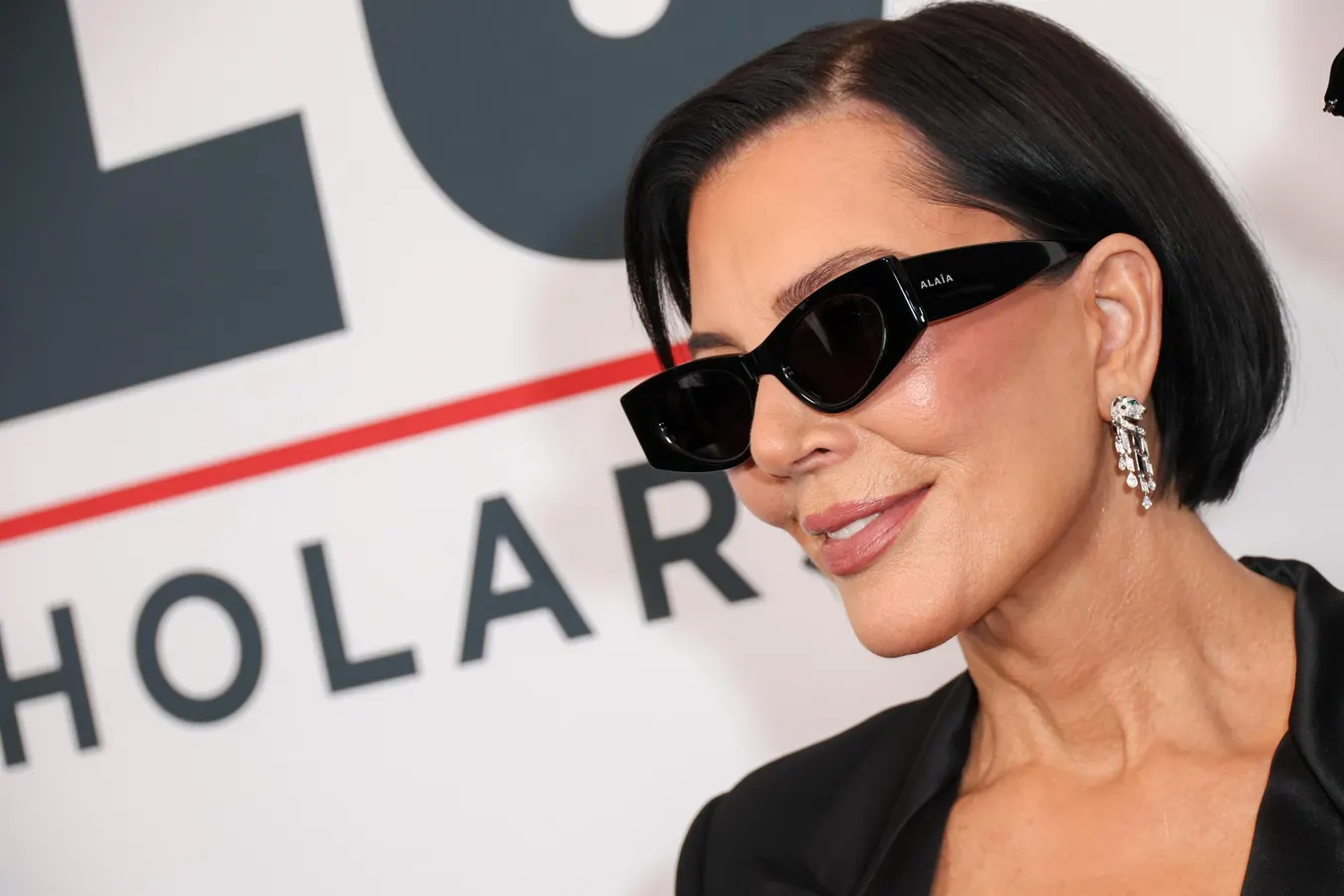By Contributor,Jc Olivera,Jessica Ourisman
Copyright forbes

Photo by JC Olivera/Variety via Getty Images
Variety via Getty Images
The aesthetics industry has officially entered its “plastic surgery disclosure era” as celebrities increasingly choose to spill the tea on the cosmetic work they have had done. For years, the public engaged in a game of “has she or hasn’t she?” debates regarding celebrity plastic surgery, yet the secretive precedent rarely moved the needle beyond speculation. Today, there is no sooner a new celebrity “glow up” going viral than a star breaks the internet by revealing the doctor’s name.
Most recently, it was the Kardashian matriarch Kris Jenner that took the bull by the horns in the September 2025 issue of Vogue Arabia, revealing she had undergone her second facelift. Following the social media fanfare from her “big reveal” in Paris, Jenner then name-dropped her doctor—the New York City-based plastic surgeon Steven Levine—and sent the beauty world into a frenzy.
“If you feel comfortable in your skin and you want to age gracefully—meaning you don’t want to do anything—then don’t do anything,” Jenner told the interviewer during this industry-breaking moment. “For me, this is aging gracefully. This is my version.”
Photo via Reddit user justmovingmytoes
Dr. Levine has always been wary of press, but one can speculate that his waitlist must be yearslong. Even prior to Jenner’s disclosure, he was rumored to have performed actress Demi Moore’s revisional surgery following her appearance on the Fendi Spring-Summer runway in 2021. His name was whispered—but of course, unconfirmed—whenever the next notable A-list glow-up emerged, from Lindsay Lohan, to Anne Hathaway, to Emma Stone and even Brad Pitt.
While medical privacy is legally protected under HIPAA, this goes to show just how powerful word-of-mouth referrals are in the world of celebrity plastic surgery. But there is absolutely nothing stopping celebrities from revealing their medical secrets should they choose to do so.
It is only fitting that the publicity-loving Kar-Jenner clan would help to pave the way. Khloe Kardashian revealed that it was the Beverly Hills plastic surgeon Raj Kanodia that performed her rhinoplasty, while Kylie Jenner posted the details of her breast augmentation with plastic surgeon Garth Fisher on TikTok. Following suit, comedian Kathy Griffin spoke openly about getting her most recent facelift with double board-certified plastic surgeon Ben Talei—the same doctor that the popstar Sia publicly thanked for her own facelift in 2023.
But is celebrity disclosure a good thing or a bad thing? Does it relieve women of the burden to meet an unattainable beauty standard, or is it adding fuel to the fire of an inherently problematic industry? The actress Jamie Lee Curtis made her stance on the topic known, calling plastic surgery a “genocide on women” during a 2025 interview with The Guardian. The most honest answer to this question is neither simple nor straightforward, which is why three plastic surgeons help to unpack it below.
Photo by ANGELA WEISS / AFP) (Photo by ANGELA WEISS/AFP via Getty Images
AFP via Getty Images
Debunking The “Unattainable” Beauty Standard
The overwhelming majority of readers polled believe that disclosure is a good thing, because knowing that a celebrity’s appearance is not natural helps them stop the process of self-comparison. Los Angeles-based plastic surgeon Jason Roostaeian also believes that as the stigma around plastic surgery is reduced via celebrity disclosure, it will allow for a more accurate portrayal of the field and its medical advancements. In all, this should serve to de-mystify the myth of “unattainability” altogether, board-certified plastic surgeon Cat Chang writes in an e-mail.
“Any time somebody with a broad public reach comes out and owns [cosmetic work they have had done] is a great thing,” says Dr. Roostaeian on a phone call. “It makes the conversation a lot easier for everyone, [which] we’ve seen over time. If you go back twenty years, plastic surgery has become less and less taboo.”
But as plastic surgery becomes an increasingly popular topic on social media, it is important to remember that virality does not equate to vetting. We all know that the internet can distort reality—from filtered photos to actual misinformation. Dr. Roostaeian points out how social media trends have even fueled bias within the field, propelling certain facelift techniques into name-recognition—like the Ponytail Lift or Deep Plane Facelift—while under-representing other equally effective techniques.
“People that market the most and capture the largest audience obviously want to promote themselves. But it is untrue that only their technique will have the best results,” he says. “Kris Jenner is the perfect example of this. People assumed that she had a Deep Plane Facelift, but in reality, I’m good friends with Dr. Steve Levine and he primarily does Smasectomy and SMAS Plication.”
Photo by Li Jing/Xinhua via Getty Images
Xinhua News Agency via Getty Images
Successful marketing and PR can even elevate surgeons into states of celebrity themselves—but even this is misleading. “There is a lot of evidence to tell you that the difference between surgeons is more minor than you would expect, as well as that ancillary techniques—like facial fat grafting, whether a deep neck lift is performed, or if a chemical peel is applied—impact outcomes to a large degree,” Dr. Roostaeian states.
Worse is when Instagram- or TikTok-famous surgeons lack proper vetting, explains Melinda Farina, founder of the plastic surgery consultancy Beauty Brokers LLC. So in a way, when public figures do disclose the names of their surgeons—which is essentially a word-of-mouth referral on steroids—they are bypassing what Farina refers to as a problematic “PR machine.” But of course, this is just part of the story.
Photo by Don Arnold/WireImage
The Disintegration Of Medical Ethics In Beauty Marketing
Yet another problematic aspect of the increasingly viral “did she or didn’t she?” narrative is that it risks minimizing the seriousness of aesthetics as a medical field. “In most cases, if they are posting about them, they are not treating them,” Dr. Roostaeian warns of social media posts speculating as to what work celebrities have had done.
You have likely seen the content that circulates social media platforms where unaffiliated providers draw from their own clinical repertoires to present hypothetical treatment plans based on celebrity appearances. This is undeniably a great marketing tactic, but some question whether it is pushing the boundaries of professionalism and medical ethics.
“[In aesthetics] I feel that there has been too much emphasis on viewing the patient as a sale, as opposed to a real patient like you would in any other medical specialty,” says board-certified plastic surgeon Amir Karam on a video call. While he possesses a formidable social media following, he is also quite vocal about his belief that treating cosmetic aging should be taken as seriously as treating any other disease or medical condition—and that aesthetics marketing should heed this value.
Melinda Farina, founder of the plastic surgery consultancy Beauty Brokers LLC, speaks out aesthetics marketing.
Melinda Farina
He speaks openly about his belief that there are risks—which are manageable, but risks nonetheless—posed by PDO threads, scarring from the biostimulant Sculptra, or even undissolved hyaluronic filler during facelift surgeries, even though it invites the wrath of providers offering those services. His point is not to categorically eliminate these interventions, but rather to provide what he believes is proper informed consent to the patient in the interest of harm reduction and pre-op planning. The reason why is that he does not believe that industry marketing always holds itself to this same standard.
To the point of this article, the way plastic surgery is portrayed in the media could absolutely be more honest. With all the hype glorifying stunning results, it is easy to gloss over the seriousness of undergoing elective surgery. Beyond the risks posed by the procedure itself, there are enormous physical and psychological burdens faced during recovery process from a facelift. This is part of why Dr. Karam documented his wife’s facelift and recovery—from start to finish—on his Instagram stories in 2024. Considering the younger and younger age groups opting to have plastic surgeries performed, more realistic portrayals might avoid romanticizing cosmetic surgeries to younger patients.
Photo by Samir Hussein/WireImage
Samir Hussein/WireImage
Degrees of Transparency
One final note from experts is that the degree of a celebrity’s transparency is still beyond our control. “It’s important that people recognize that just because somebody is being open about what they have had done does not mean that that is all that they have had done,” writes Dr. Chang. “[Celebrity disclosure] is not all-encompassing, so that can actually contribute to an unrealistic beauty standard associated with a plastic surgery procedure,” she continues.
This brings back Dr. Roostaeian’s mention of those pesky “ancillary techniques” in a surgeon’s toolkit, which impact a patient’s outcome following a surgery. Even when it comes to facials, celebrity facialist Sarah Ford admitted at her office in Beverly Hills that it would not be realistic for the average person to get facials and treatments at the same frequency as certain high-profile clients. A singular disclosure might open the door for more honest discussion around beauty regimens, yet the full picture might actually still be unattainable.
Many plastic surgeons have commented how post-facelift, patients become more interested in adopting facial routine; so much so that Dr. Chang and Dr. Karam have both created their own skincare lines. Beyond this, there are countless genetic and lifestyle factors that are unique to each patient’s aesthetic trajectory, from nutrition, to exercise, stress levels, sleep quality and even hobbies. A devoted bio-hacker might just have a smoother complexion than, say, an avid outdoorsman or sun worshipper.
Photo by JB Lacroix/FilmMagic
These are some of the smaller ways that one-off plastic surgery disclosures can still run the risk of setting up fans for unrealistic expectations. So just bear in mind that when Kris Jenner revealed the name of her surgeon, she did not then detail the full extent of the beauty practices she uses to maintain and complement her results. (For all we know, she could be frequenting Paris Hilton’s at-home spa, complete with professional grade red light therapy and a hyperbaric oxygen chamber.)
“While I do think these conversations are positive because they are helping people become more informed, there’s always some negativity and backlash,” Dr. Chang reflects. “It is less beneficial, for instance, for the younger consumer that is highly impressionable and feels pressured to undergo a plastic surgery procedure, or for someone who is unable to afford these procedures, it might fuel a sense of unattainability.”
While keeping Dr. Chang’s sage insights in mind, the macro-level consensus is that greater openness around plastic surgery is indeed a beneficial thing when it comes to dismantling some of the detriment caused by media-perpetuated beauty standards. But only time will tell how the industry evolves in kind and whether this increased transparency also signals heightened integrity.
More From Forbes
ForbesPlastic Surgeons Predict The Top Aesthetic Procedures For 2025By Jessica OurismanForbesMeet The ‘Tip Stitch,’ Plastic Surgery’s Non-Invasive Nose JobBy Jessica OurismanForbesGot Dark Circles? Consider A Safer Alternative To Under-Eye FillerBy Jessica OurismanForbesThese Are The Top Lip Trends For 2024, According To ExpertsBy Jessica OurismanForbesA Day In The Life Of A Celebrity Facialist At The Venice Film FestivalBy Jessica Ourisman
Editorial StandardsReprints & Permissions



